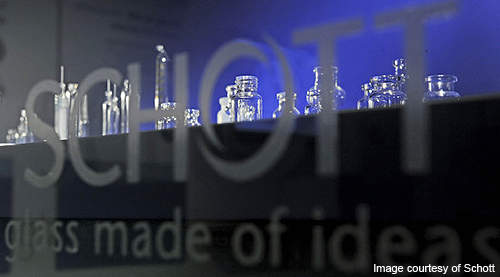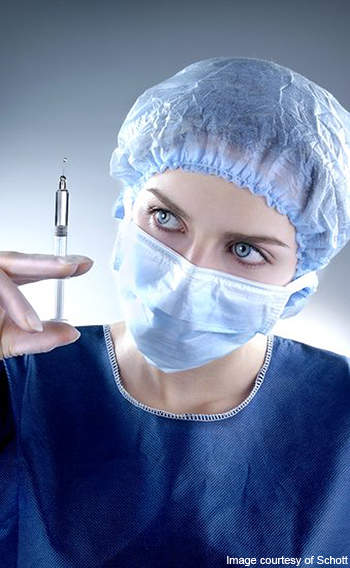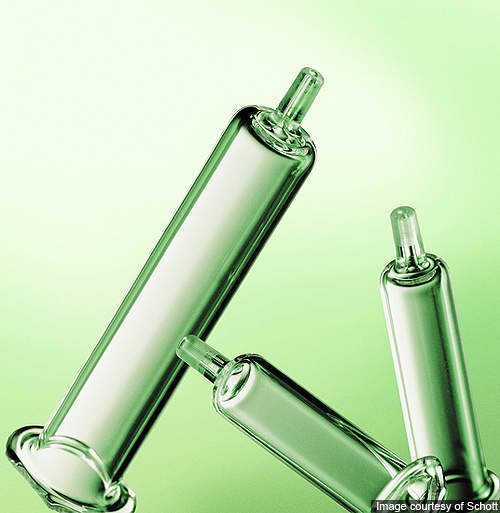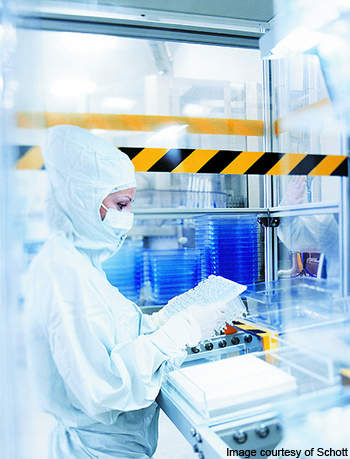SCHOTT Pharmaceutical Packaging operates a cGMP manufacturing plant in Lebanon Valley Business Park, Pennsylvania, US.
The plant was established in 2004 to replace the company’s original 73,500ft² plant in Cleona and a separate 37,500ft² warehouse. It is certified to ISO 9001:2000 standards and produces glass and glass-related manufacturing systems.
A $14m expansion to the plant was completed in June 2010. The expansion has added a new syringe production line to allow the company to expand its product portfolio, which includes vials, cartridges and ampoules. It will make Schott Pharmaceutical the second company in the US to offer a complete range of pharmaceutical packaging products. The company earlier imported syringes to the US from its manufacturing site in Switzerland.
The expansion resulted in approximately 41 new jobs. Facility and equipment validations of the syringe production line were completed by the end of June 2010.
Facility
The facility is a single storey building measuring 173,144ft² in area. It includes a manufacturing suite and approximately 15,000ft² of dedicated space for offices, conference rooms, cafeteria and locker rooms. The manufacturing area houses class 100,000 clean rooms. Packaging is undertaken according to customers’ specifications in a controlled environment. Temperature controlled air is introduced into the facility through roof mounted units that are equipped with direct gas fired heaters and chilled water coils.
The most heavily occupied zones are provided with spot cooling. Glass forming equipment has been installed in the zone to supply moulded glass containers.
Expansion
The new line has been designed with state-of-the-art technologies including dimensional camera inspection. It is installed within an ISO 7 (Class 10,000) clean room. To ensure a higher level of air quality, as required by the syringe line, there are two gowning stations. Workers have to pass through these stations to change their clothes and shoes to smocks, Crocs footwear and goggles.
A transparent plastic curtain wraps the line in order to ensure that the highest quality air immediately surrounds the line and pressure within the plant is maintained stable. Air flows away from the line and out of the room, eliminating any possibility of particulates entering the room. A pressure gradient is maintained across the plant so that air flows from the cleanest zones to less cleaner zones and finally outside.
An 1,800ft² water treatment room was constructed to wash the syringes. The room is installed with pumps, tanks, pipes, compressor, heat exchanger and monitoring equipment that convert municipal water into sterile water-for-injection (WFI) through the process of vapour compression distillation.
Process technology
The water treatment system will purify and maintain the sterile WFI for syringe washing. WFI will be sprayed on both sides of the syringes. The washed syringes will be dried using compressed air and placed vertically into nests and tubs. A protective Tyyek sealing foil will form a covering. The foil will be sealed on four tubs using heat. Each tub will be sealed in a labelled bag before it is stored.
Capacity
The facility produces 1.5 million pharmaceutical glass vials, ampoules and cartridges per day. The new syringe line is designed to operate at a capacity of 270,000 syringes per day or 100 million syringes annually. The capacity is sufficient to meet approximately one-third of the current demand in the US market. The demand for ready-to-fill manufacturing in North America is expected to increase by 8% to 10% a year.
Contractors
The Lebanon facility was designed by Greenfield Architects. Construction management and design-build services were provided by High Construction.
Future
The company plans to invest $30m towards the expansion of the Lebanon facility. While the timeline of the expansion is uncertain, it is expected to create 80 new jobs. Space for future expansion is available within the infrastructure constructed for the new syringe production line. It can accommodate up to four syringe lines.






